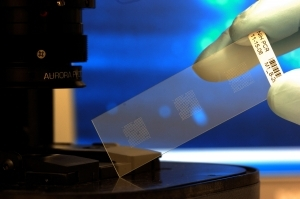
Breaking News
 SILVER CRASHES TO $75 - But China Is Paying $89 (Ghost Week Trap)
SILVER CRASHES TO $75 - But China Is Paying $89 (Ghost Week Trap)
 Firegate: Democrat LA Mayor Karen Bass' Admin Altered Palisades Fire Report & Deleted Evidence
Firegate: Democrat LA Mayor Karen Bass' Admin Altered Palisades Fire Report & Deleted Evidence
 BREAKING: Candace Owens' Massive Mind Control House of Cards is Now Collapsing in Real Time
BREAKING: Candace Owens' Massive Mind Control House of Cards is Now Collapsing in Real Time
 We Cannot Build an Economy on Lies
We Cannot Build an Economy on Lies
Top Tech News
 EngineAI T800: Born to Disrupt! #EngineAI #robotics #newtechnology #newproduct
EngineAI T800: Born to Disrupt! #EngineAI #robotics #newtechnology #newproduct
 This Silicon Anode Breakthrough Could Mark A Turning Point For EV Batteries [Update]
This Silicon Anode Breakthrough Could Mark A Turning Point For EV Batteries [Update]
 Travel gadget promises to dry and iron your clothes – totally hands-free
Travel gadget promises to dry and iron your clothes – totally hands-free
 Perfect Aircrete, Kitchen Ingredients.
Perfect Aircrete, Kitchen Ingredients.
 Futuristic pixel-raising display lets you feel what's onscreen
Futuristic pixel-raising display lets you feel what's onscreen
 Cutting-Edge Facility Generates Pure Water and Hydrogen Fuel from Seawater for Mere Pennies
Cutting-Edge Facility Generates Pure Water and Hydrogen Fuel from Seawater for Mere Pennies
 This tiny dev board is packed with features for ambitious makers
This tiny dev board is packed with features for ambitious makers
 Scientists Discover Gel to Regrow Tooth Enamel
Scientists Discover Gel to Regrow Tooth Enamel
 Vitamin C and Dandelion Root Killing Cancer Cells -- as Former CDC Director Calls for COVID-19...
Vitamin C and Dandelion Root Killing Cancer Cells -- as Former CDC Director Calls for COVID-19...
 Galactic Brain: US firm plans space-based data centers, power grid to challenge China
Galactic Brain: US firm plans space-based data centers, power grid to challenge China
This cheap and easy lab-on-a-chip could save lives

From detecting breast cancer to screening for HIV, surviving serious disease depends on early detection. When regular testing isn't available, lives are lost. But early detection often requires expensive lab equipment, and specialty training that isn't easily common in many parts of the world. According to the World Health Organization, breast cancer—the most common cancer in women—has a survival rate that's roughly twice as high in high-income nations as it is in low-income countries.
"It basically emphasized that we needed to have access to early diagnostic tools," said Rahim Esfandyarpour, an engineering associate at the Stanford Technology Center.
So Esfandyarpour and a team of researchers at the Stanford University School of Medicine endeavored to do something about it. They've developed a diagnostic 'lab-on-a-chip' that can be manufactured on the cheap and produced with your run-of-the-mill inkjet printer.



